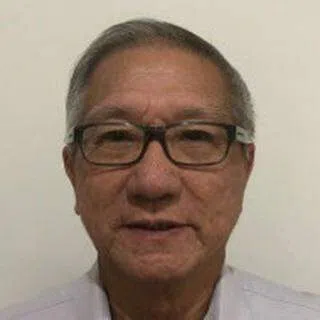Invite list for Summit for Democracy shows true calculations in American foreign policy
Former journalist and MP Goh Choon Kang asserts that out of the 110 invitees for this week's Summit for Democracy, more than a few countries probably chose to go along out of courtesy. In the main, the international community subscribes to inclusiveness and win-win multilateralism. Efforts to delineate countries based on ideology or values will not go down very well. If anything, the invite and non-invite lists speak of the US's own geopolitical calculations, not least its search for an added means to contain China.

The Summit for Democracy convened by US President Joe Biden is scheduled to take place online from 9-10 December. On 23 November, the US State Department announced the list of participants which includes 110 countries and regions. In the Asia-Pacific, Taiwan, India, Pakistan, Japan, South Korea, Australia and New Zealand are among those invited.
Of the ten ASEAN member countries, the Philippines, Indonesia and Malaysia are invited while the remaining seven of Brunei, Cambodia, Laos, Myanmar, Thailand, Singapore and Vietnam are not. Leaving out Singapore from the invitation list did generate some online discussion, but it was generally lukewarm, indicating a lack of interest from the public. Most Singaporeans also understand that participating in the summit is of no strategic significance.
Values-based diplomacy
Hosting the summit is one of President Biden's campaign pledges, and it is obviously a primary means of dealing with China. This drawing of battle lines in the name of democracy is reminiscent of the Cold War era. It goes against the tide of global development today and is unlikely to resonate with the international community. Chances are, more than a few countries chose to go along out of courtesy instead of turning down the invitation. After all, the show must go on.

The mainstream today subscribes to inclusiveness and win-win multilateralism, instead of reverting to Cold War era divisions and confrontation. Every country has the right to choose which doctrine to believe in, and it is pointless to fight over this. Instead, economic cooperation is more important. However, this does not equate to a blatant disregard of principles, and how ASEAN dealt with the issue of Myanmar's representation is a case in point.
The Singapore government made it clear from the outset that it did not agree with the Cold War practice of forming cliques. At the Bloomberg New Economy Forum on 17 November last year, Prime Minister Lee Hsien Loong was interviewed by John Micklethwait, the editor-in-chief of Bloomberg News. The exclusive interview focused on the foreign policy of the newly-elected President Biden.
Micklethwait asked PM Lee for his views on President Biden's intention of forming a coalition of democracies with countries like Singapore, Indonesia, Japan and South Korea. In response, PM Lee said, "We all want to work together with the US. We all want to work together with other vibrant economies... not very many countries would like to join a coalition against those who have been excluded, chief of whom would be China. Not just Singapore and not just in Asia, I think even in Europe there will be countries who want to do business with China... I think it is better. You want everybody in the discussion when trying to work out adjustments to the world order. In that process, they will cooperate with one another, they will try and find common cause." The US State Department would not have overlooked Singapore's position when it was coming up with the invitation list to the democracy summit.
...using ideology to make the world do one's bidding is no longer feasible. To win hearts, the US should pragmatically reassess its conventional diplomatic methods, and focus on cooperation instead of confrontation.
At this year's Bloomberg New Economy Forum held on 17 November, Micklethwait interviewed PM Lee again, with the focus this time round on the rivalry between the US and China. On how the US views China, PM Lee pointed out that the bipartisan consensus in the US is that China is not just a potential threat, but a challenger, and an opponent almost. At the same time, the bilateral relationship goes beyond contesting strategic balance, but has a moral dimension to it - right and wrong. The US believes that unlike China, it stands for democracy and human rights. Defining issues like this makes it very difficult to talk about coexistence.
American democracy may no longer be the gold standard
It can also be said that in today's world, using ideology to make the world do one's bidding is no longer feasible. To win hearts, the US should pragmatically reassess its conventional diplomatic methods, and focus on cooperation instead of confrontation. Americans must also realise that American democracy has lost its former lustre, and is no longer the gold standard. In fact, some have even said that it has regressed.

On 13 May this year, there was an article in Newsweek which argued that the US no longer has an absolute say over what democracy means. That is the truth. There are many variants of democracy in the world today. Nearly all countries say they are practising democracy, just defined differently. The American- or British-style democracy adopted by quite a few countries has mutated into new variants. For example, Duterte-style democracy in the Philippines, Modi-style democracy in India, and Orbán-style democracy in Hungary.
Democracy should not be restricted to what is practised in the UK and the US.
Black cat or white cat, as long as it catches mice
While Westerners view China as an authoritarian regime, the Chinese government argues that democracy is a common value of mankind. To China, whether a country is democratic should be judged by its people, not dictated by a handful of outsiders. Whether a country is democratic is also a matter for the international community, and not arbitrarily decided by a few self-appointed judges. There is no fixed model of democracy and it manifests itself in many forms. Indeed, any doctrine that is able to improve lives and bring about prosperity is a good doctrine, which is the same logic behind Deng Xiaoping's saying: "Black cat or white cat, if it can catch mice, it is a good cat." Democracy should not be restricted to what is practised in the UK and the US.
Going back to the invitation list, it can be said that both the list of invitees and the list of those who were not invited are equally intriguing. In response to queries, American officials who came up with the invitation list explained that they tried to bring together countries around the world with different experiences of democracy, in other words, representation across the board.
China-centric political calculations behind the invite list
In the Asia-Pacific, other than the Philippines, an ally of the US, the ASEAN member countries of Malaysia and Indonesia were also invited. Why is that so? Obviously, because these countries crossed swords with China recently over disputes in the South China Sea. The motive for inviting Taiwan, a pawn to deal with China, also goes without saying.
Then, there is the Solomon Islands, a far-flung, small island nation in the Pacific. Coincidentally, unrest broke out in the country on 24 November and lasted for several days. Rioters attacked the parliament building and clashed with police officers and attacked Chinese shops in the country's Chinatown. Other than acts of pillage and arson, protestors also marched to the Chinese embassy.

In an interview with the Australian Broadcasting Corporation (ABC), Prime Minister Manasseh Sogavare of the Solomon Islands said that the only problem which led to the unrest was the divide in his country arising from the government's decision to recognise China instead of Taiwan in 2019. Sogavare said the issue was "unfortunately influenced and encouraged by other powers", adding, "I don't want to name names. We'll leave it there." Indeed, as the Cantonese saying goes, there is no need to outline the intestines when drawing figurines (画公仔唔使画出肠), meaning there is no need to spell everything out.
The list of countries not invited underscores the true nature of American foreign strategy.
In the South Asia subcontinent, both India and Pakistan are invited. Alongside the US, Japan and Australia, India is a member of the Quadrilateral Security Dialogue (Quad). India has unresolved border issues with China, while Pakistan claims to be China's bosom buddy but also has intricate ties with the US. US special forces flew right into Pakistan to exterminate Osama bin Laden.
In the Middle East, Israel's invitation is unsurprising, but Iraq is invited though no other Arab countries made the list. The US spearheaded the invasion of Iraq in 2003 and its present day democracy was fostered by the US, but is it really representative of democracy in the Middle East?
The list of countries not invited underscores the true nature of American foreign strategy. To Middle Eastern countries, even though Saudi Arabia is not a democracy, it is the US's most important strategic ally in the region. Singapore did not receive an invite, but in reality, it shares closer trade and defence ties with the US than many of the countries that were invited. This goes to show that the real consideration behind American diplomacy is its interests and not democracy. Democracy is but a front or a means, and the same can be said of many countries' diplomacy. This is the reality of international relations. As for the Summit for Democracy, it might be better not to talk about it.



![[Photos] Fact versus fiction: The portrayal of WWII anti-Japanese martyrs in Taiwan](https://cassette.sphdigital.com.sg/image/thinkchina/3494f8bd481870f7c65b881fd21a3fd733f573f23232376e39c532a2c7593cbc)

